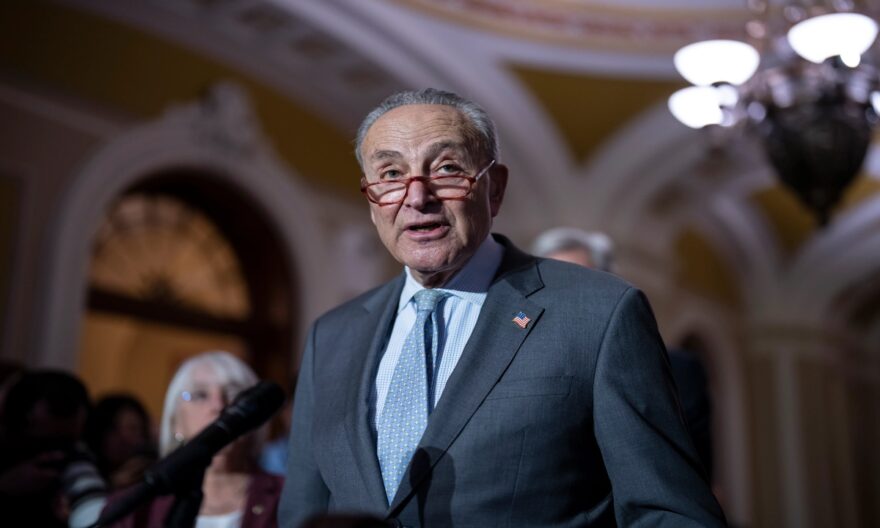
Senate Majority Leader Chuck Schumer is set to disclose his highly anticipated blueprint for regulating artificial intelligence during a speech. In this address, he will outline the measures that Congress can adopt to proactively address the rapidly advancing technology.
The Democratic representative from New York will emphasize the advantages of AI, such as its contributions to disease prevention and its ability to enhance Americans’ lives by increasing efficiency. However, Schumer will also echo the concerns expressed by numerous technology experts regarding the potential risks associated with AI. These risks include substantial disruptions to the workforce, the spread of misinformation, and interference in elections.
During his keynote speech at the Center for Strategic and International Studies, Schumer will introduce his “SAFE Innovation” framework and advocate for a comprehensive approach to AI, urging all stakeholders to participate.
Schumer previewed his remarks in a floor speech on Tuesday, stating, “Congress cannot behave like ostriches in the sand when it comes to AI. Some might think it’s better to ignore this issue or hope someone else figures it out because it’s so complex, but ignoring AI is untenable for Congress.” He further emphasized “In the 21st century, elected representatives must treat AI with the same level of seriousness as national security, job creation and our civil liberties, because AI will touch on these issues and many, many more.”
As concerns regarding the potential consequences of unchecked artificial intelligence have intensified, Schumer’s speech coincides with the urgent efforts in Washington to address these alarming warnings from AI experts. Notably, Sam Altman, the CEO of OpenAI, has cautioned that if left unregulated, AI could pose a threat to human existence.
The gravity of these warnings has captured the attention of prominent political leaders and policymakers. President Joe Biden, during his recent visit to the Bay Area, engaged in discussions with eight AI experts in San Francisco. Among the participants were Jim Steyer, CEO of Common Sense Media; Sal Khan, founder and CEO of Khan Academy; and Tristan Harris, executive director and co-founder of the Center for Humane Technology, and former design ethicist at Google.
Biden acknowledged the significance of technological advancements, stating, “We’ll see more technological change in the next 10 years than we’ve seen in the last 50 years — and maybe even beyond that.” He further emphasized that “And AI is already driving that change in every part of the American life.”
Furthermore, recently, a group of lawmakers from both parties and chambers introduced the National AI Commission Act, a legislation aimed at establishing a national commission composed of experts. This commission would be tasked with studying and evaluating the most effective approach for regulating AI in the United States.
Representatives Ted Lieu and Anna Eshoo, both Democrats from California, along with Representative Ken Buck, a Republican from Colorado, are collaborating on the House bill. In the Senate, Senator Brian Schatz, a Democrat from Hawaii, will introduce a companion bill.
In addition to his own efforts, Schumer has been organizing a series of bipartisan briefings to facilitate the familiarization of senators with AI. He has been working closely with Senators Martin Heinrich, a Democrat from New Mexico, Todd Young, a Republican from Indiana, and Mike Rounds, a Republican from South Dakota. Additionally, Schumer has been collaborating with the bipartisan leaders of various significant committees in this endeavor.




